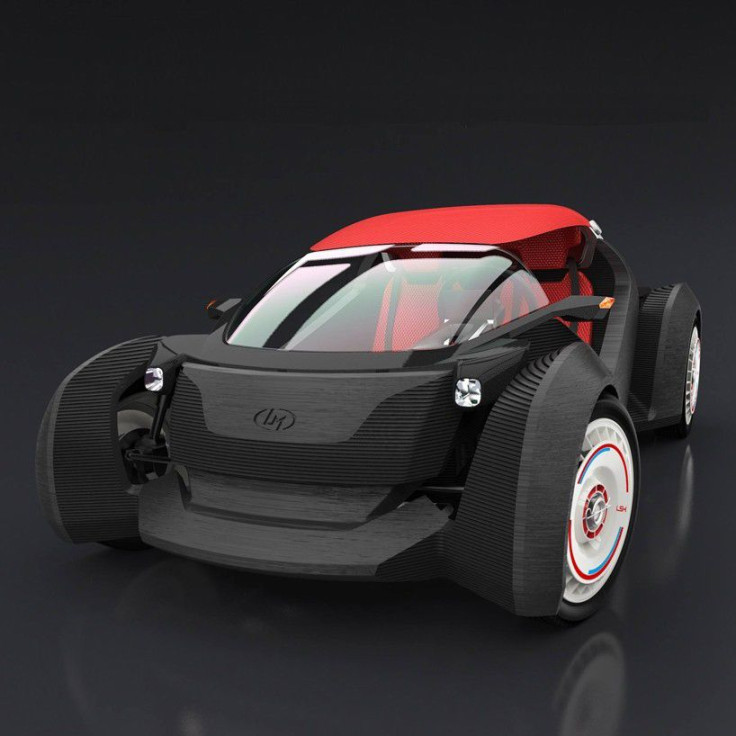Enter The Strati: At Less Than Five 3D-Printed Layers Per Hour, Arizona Startup Proves A Concept Of Small, Simple Electric Cars

3D printing is already being employed on a small scale in motor vehicle manufacturing, mainly to speed up the time and lower the cost of developing vehicle prototypes during the development and design process. But a display at International Manufacturing Technology Show last week in Chicago showed the potential for the technology to become a simpler way to build not just the models but also the cars themselves.
The biggest drawback to using 3D printing in mass production is the time it takes to build components. It can take days for a printer to slowly lay down layer upon layer of carbon-fiber-reinforced thermoplastic, especially if the end product needs smooth edges requiring thinner layers. But in an attempt to prove the technology is quickly advancing, 7-year-old Arizona-based startup Local Motors produced a chassis, body, seats and dashboard of a small electric car called the Strati in 44 hours -- lightning-fast for parts of this size.
The car was designed by Michelle Anoe of Turin, Italy, who won an online competition for the design of the prototype vehicle, which as its name suggests, was printed faster by using thicker layers, giving the vehicle a Lego-brick aesthetic. Printed from 212 layers of the thermoplastic, the Strati took only a fraction of the 2,500 hours it took to print the body of the Urbee, an urban electric car concept car built last year by a team of California-based engineers who are currently crowdsourcing to create “the greenest car on earth.”
The Strati can go up to 40 miles an hour with up to 150 miles per charge using the conventionally manufactured parts from Twizy, French automaker Renault’s two-passenger electric city car. Strati squeezed more range out of the same components because of the lighter, 3D-printed material. Local Motors points out that the Strati is built from just 40 parts, compared to the hundreds that could go into a car of this size. No word on whether the Strati would meet safety standards, but as a proof of concept, it doesn’t matter.
© Copyright IBTimes 2024. All rights reserved.




















